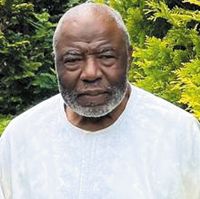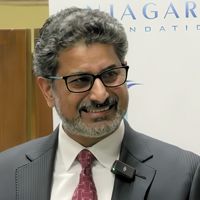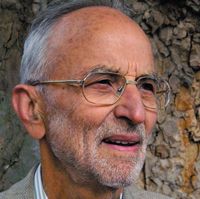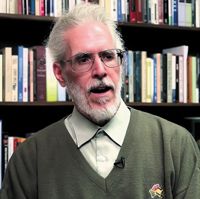
Building Bridges
Building Bridges
In This Article
-
“A true believer never hesitates to reach out to those from different faiths, for it is in reaching out that we find the core of our humanity.”
-
His contributions to Islamic thought placed him alongside the foremost thinkers of the 20th century, including Maulana Abu ala Maududi, Sayyid Qutb, who engaged with questions of modernity and Western democracy, however, often seeing the West in opposition.
Gülen’s teachings, rooted in the Islamic principles, reached far beyond his homeland of Turkey and inspiring a movement committed to peace, compassion and intellectual growth.
Central to Gülen’s philosophy was the transformative power of eğitim, or education. He believed that education was the foundation of a peaceful society, one that fosters understanding and breaks down barriers. The global network of schools he inspired, known as Hizmet okulları, embodies his mission to cultivate not only the intellect but also the soul, instilling values of integrity, humility and service.
His words ring true: “Education is the most effective means to fight ignorance, and with it to fight poverty and strife.” Gülen was also a pioneering advocate for dialogue or interfaith dialogue. He believed that reaching across religious and cultural divides was essential to building a more compassionate world. In this, he introduced the concept of hoşgörü, not merely tolerant as it's often defined, but a deep, respectful openness toward others.
He famously said, “A true believer never hesitates to reach out to those from different faiths, for it is in reaching out that we find the core of our humanity.” Fethullah Gülen’s interfaith Initiatives called us to celebrate our shared values and build peace.
Another remarkable aspect of his work was his view of Islam's place in the West. And this is what I personally enjoyed and experienced the most. He saw the West, as an opportunity for Muslims to embody their values in ways that serve and uplift society. His philosophy of medeniyet, or civilization, reflected his belief that Muslims in the West could integrate harmoniously, building bridges and contributing to a shared moral society. He taught that Islam is not a barrier but a bridge, an ideal that inspired countless Muslims to feel at home in Western societies.
His contributions to Islamic thought placed him alongside the foremost thinkers of the 20th century, including Maulana Abu ala Maududi, Sayyid Qutb, who engaged with questions of modernity and Western democracy, however, often seeing the West in opposition. But where Qutb leaned toward confrontation, Fethullah Gülen saw integration as an opportunity similar to the Indian Muslim thinker and freedom fighter Maulana Abu Kalam Azad.
In this way, he aligns closely with the Turkish Sufi tradition, especially the teachings of Said Nursi, who emphasized faith, knowledge and dialogue as a means to engage with the world constructively. Like Nursi, Gülen advocated for ihsan or personal excellence in one's faith, seeing true faith as reflected in a life of integrity, selflessness and service. This is significant because Fethullah Gülen lived and taught during a tumultuous period of European decolonization, and the Muslim world's attempt to be free from absolutism, Western colonization, and dictatorships.
His sojourn in the United States coincided with the 9/11 attacks and the American invasion and occupation of Iraq, which led to the rise of ISIS and the Islamic State. This period of time in our history, particularly in America, featured the public discussion of Islam, violence, and terrorism, to which Fethullah Gülen and the Hizmet movement provided a much needed spiritual and peaceful interpretations of Islam, coupled with interfaith dialogue and understanding. Particularly at a time when many Muslim organizations and groups were silent or somewhat defensive, the Hizmet movement moved into the space to argue for peace, bridge-building and spirituality. In relation to his concept of hizmet or service, Fethullah Gülen expressed the Sufi ideal of living a dedicated life to the welfare of others, inspired by a deep love for humanity and God.
This devotion echoes the Sufi tradition of tasawwuf, where closeness to God is achieved not just through worship but serving others. His movement redefined spirituality as social engagement, reminding us that true faith lies in uplifting others.
His teachings are manifested not just in ideas that I read, but in people that we've all met and known. May his life inspire us to build bridges, seek understanding and serve humanity with love and compassion.














